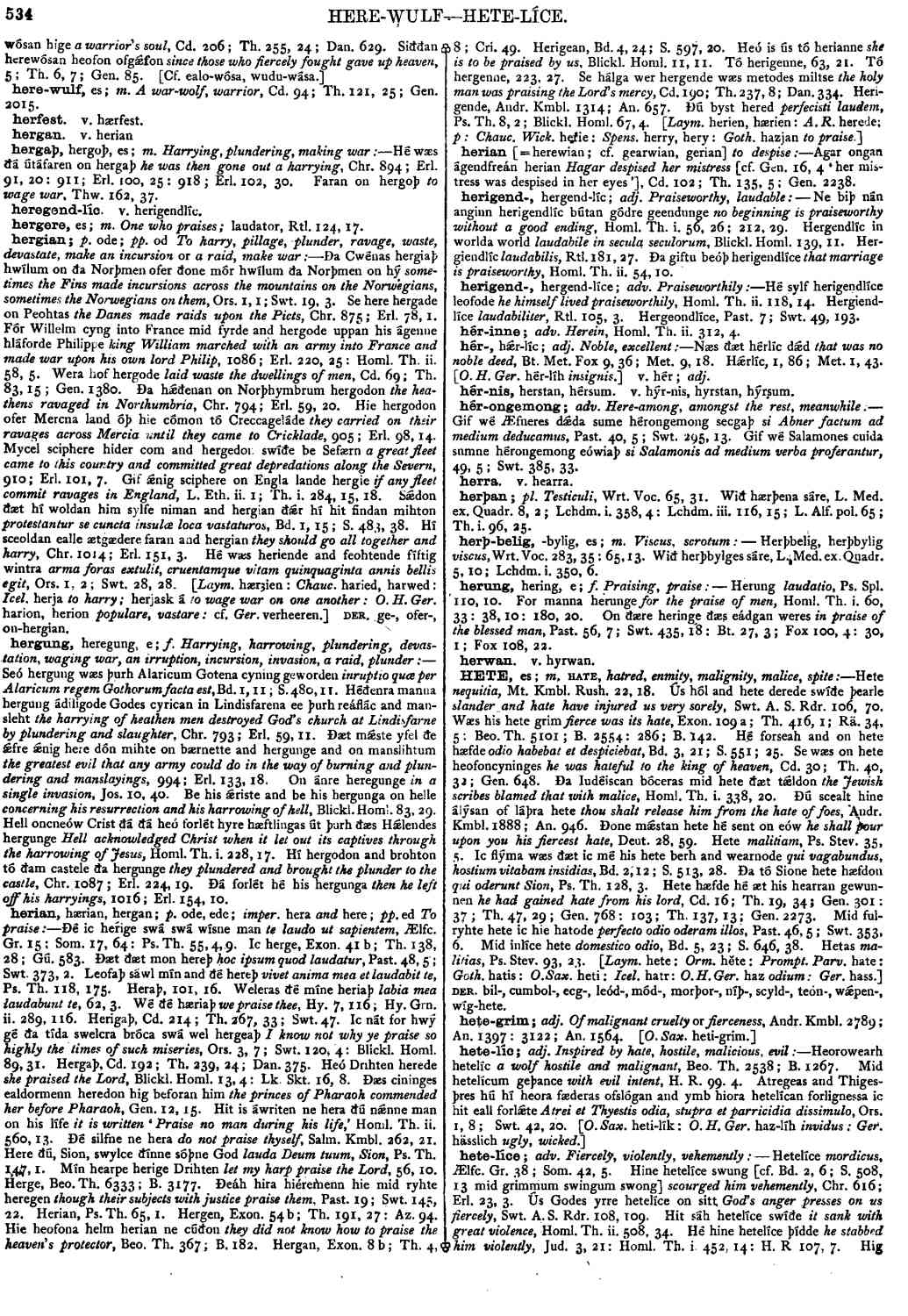HETE
- noun [ masculine ]
-
Hete
nequitia,
- Mt. Kmbl. Rush. 22, 18.
-
Ús hól and hete derede swíðe þearle
slander and hate have injured us very sorely.
- Swt. A. S. Rdr. 106, 70.
-
Wæs his hete grim
fierce was its hate.
- Exon. 109 a; Th. 416, 1; Rä. 34, 5 :
- Beo. Th. 5101 ;
- B. 2554: 286 ;
- B. 142.
-
Hé forseah and on hete hæfde
odio habebat et despiciebat,
- Bd. 3, 21; S. 551; 25.
-
Se wæs on hete heofoncyninges
he was hateful to the king of heaven,
- Cd. 30; Th. 40, 31; Gen. 648.
-
Ða Iudéiscan bóceras mid hete ðæt tǽldon
the Jewish scribes blamed that with malice.
- Homl. Th. i. 338, 20.
-
Ðú scealt hine álýsan of láþra hete
thou shalt release him from the hate of foes,
- Andr. Kmbl. 1888; An. 946.
-
Ðone mǽstan hete hé sent on eów
he shall pour upon you his fiercest hate,
- Deut. 28, 59.
-
Hete
malitiam,
- Ps. Stev. 35, 5.
-
Ic flýma wæs ðæt ic mé his hete berh and wearnode
qui vagabundus, hostium vitabam insidias,
- Bd. 2, 12; S. 513, 28.
-
Ða tó Sione hete hæfdon
qui oderunt Sion,
- Ps. Th. 128, 3.
-
Hete hæfde hé æt his hearran gewunnen
he had gained hate from his lord,
- Cd. 16; Th. 19, 34; Gen. 301 :
- 37; Th. 47, 29; Gen. 768 :
- 103; Th. 137, 13; Gen. 2273.
-
Mid fulryhte hete ic hie hatode
perfecto odio oderam illos,
- Past. 46, 5; Swt. 353, 6.
-
Mid inlíce hete
domestico odio,
- Bd. 5, 23; S. 646, 38 .
-
Hetas
malitias,
- Ps. Stev. 93, 23 .
Bosworth, Joseph. “HETE.” In An Anglo-Saxon Dictionary Online, edited by Thomas Northcote Toller, Christ Sean, and Ondřej Tichy. Prague: Faculty of Arts, Charles University, 2014. https://bosworthtoller.com/18957.
Checked: 1